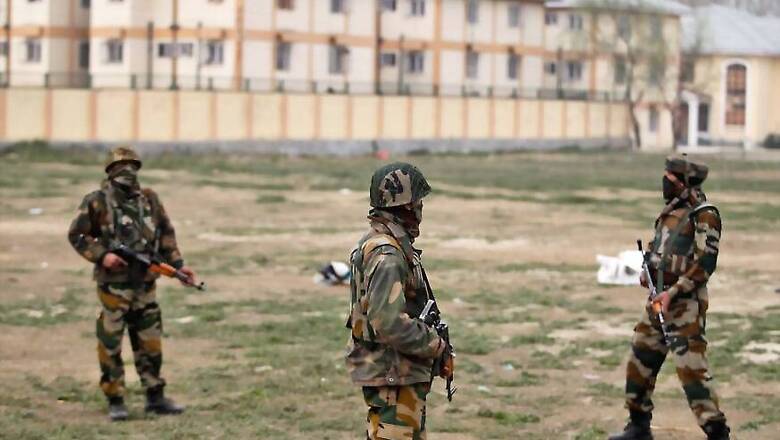
views
New Delhi: The tragedy that unfolded in Uri, where the burn injuries did more damage than bullets, highlights the vulnerabilities of using tents and temporary shelters as accommodation for troops besides raising questions on whether the forces should overhaul their policy on storing and transporting fuel.
The incendiary ammunition used by the terrorists bring new risks to the fore. They can be used not only to burn tent material, but can also cause massive explosions if directed at fuel depots, interviews with retired army personnel conducted by News18 revealed.
"Tents are not a solution for housing in a forward area because they are vulnerable," Col. (retd) Vivek Chadha said in a phone interview.
"There is no option but to use structures made of fortified brick and mortar," he said, adding that since the Bihar unit was replacing the Dogra regiment, some soldiers would have had to be temporarily accommodated in tents.
Even if the tents were fire resistant, they may have been vulnerable to high explosive fragmentation grenades which dispense lethal fragments on detonation, said Chadha who is also a research fellow at New-Delhi based Institute for Defence Studies and Analysis (IDSA).
If it is fired in air burst mode, the shell bursts in the air and the area below gets saturated with shards and splinters, which can rip through cloth tents and injure soldiers within them.
The other danger to forward bases is the way the Army handles its fuel. The Army Service Corps transports and stores fuel for the Indian Army. It is better to leave the logistics of fuel to Indian Oil Corporation, an official who worked with the Armed Forces' auditor said.
"The core competence of the Army is fighting, not transporting fuel," AK Saxena, who was the Additional Controller General of Defence Accounts said.
Unlike in the past, oil companies have a substantial nation-wide fuel distribution network and it be more efficient for the army to entrust the distribution and storage of its fuel to them, Saxena said. The army currently transports fuel in jerry cans and barrels and stores them in depots.
“Today they used incendiary ammunition to burn tents, tomorrow they may target depots,” he said.
“All issues pertaining to the Uri attack will be looked at comprehensively and necessary steps will be instituted,” a top defence source told News18 when contacted for this story.
In fact, not just tenting procedures, but the entire security of army installations, both in forward areas and peace stations needs to be relooked, said Col Chadha. Installations in forward areas need to strengthen both surveillance and fortifications at their peripheries. The enhanced surveillance would warn them of movement beyond the periphery while the extra fortifications would stall movement inward ingress.
Further, all infrastructure inside the base must be made of fortified brick and mortar and a quick reaction team needs to be put into place to engage with terrorists who manage to breach the defences Bramha Chellaney, a professor of strategic studies at the Centre for Policy Research, said that the Pathankot attack should have been a wake-up call.
“There have been multiple attacks on security bases and there should have been a review a long time ago,” he said, adding “The Uri attack is a serious lapse of security.”


















Comments
0 comment